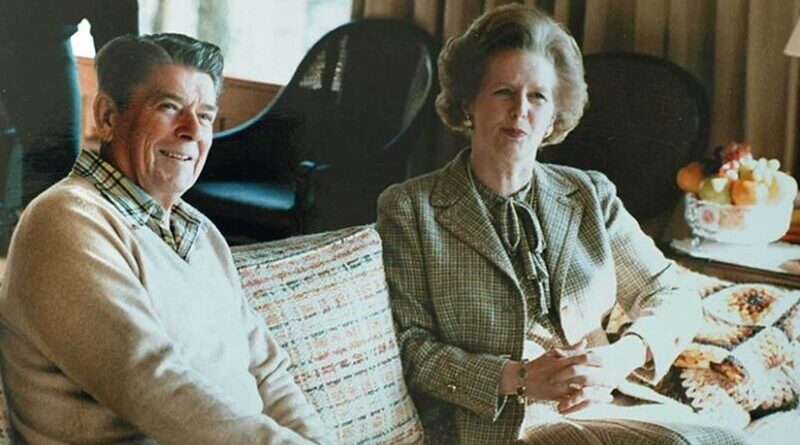Defining Conservatism For The 21st Century – OpEd
By Ben Sixsmith
Mitchell Blatt defends “Never Trump” neoconservatives from my argument that they are not conservative. It is a civil, spirited and substantive piece. I shall endeavour to uphold these virtues in my response.
I do not think neoconservatives are pseudo-conservative because they are “small government, pro-free trade” supporters of “a strong role for America in the world”. None of these positions are contrary to conservatism in broad terms but they can be depending on their particular forms.
There is a question of scale. Salt is important in cooking yet it can be overused. Supporting an American influence in the world can be conservative yet backing regime change and democratisation is not.
There is also a question of ends and means. Small government and free markets might be means of maintaining peaceful and prosperous societies but are not ends in themselves. They can produce positive economic outcomes but if these arrive too gravely at the cost of social cohesion, cultural standards, environmental preservation and personal fulfilment something can be wrong, or, at least, can be missing.
I would like to admit to an error in my piece. Quoting the neoconservative Noah Rothman’s claim that “in terms of policy and governance, America in 2017 is a much more conservative country than it was in 1992” I all but ignored the first six words. So, Blatt is correct, for example, that replying to Rothman’s reference to the “revitalization of First and Second Amendment freedoms” by mentioning private censorship did not refute his claim.
But what inspired this error? The absurd narrowness of the point. The President Bush who signed the Immigration Act of 1990 was not especially conservative – and, besides, politics is about a great deal more than policy and governance. Culture matters. So, while the First Amendment is of course significant, being shouted down and sacked can have the same censorious effect as legal prohibitions.
Neoconservatives often indulge in excessive liberal individualism, and I believe that in this essay Mr Blatt has done the same. He says “it is not the government’s role, from a libertarian perspective, to control everyone’s personal choices”. True, but libertarians are not conservatives. Not for nothing did Russell Kirk describe them as “chirping sectaries”. There is also a certain Whiggishness in Blatt’s response to my concerns about Middle Eastern conflict. “The threat of dying in war and violence in modern times is at the lowest it’s been in history,” he writes. It is true, as Pinker claims, that violent deaths have declined but assessing the threat of violence must involve not just the past and present but the future. Social trends are reversible, and as we face border-hopping jihadist fanatics, sectarian strife and nuclear brinkmanship we must accept that the “Long Peace” is no exception.
Mr Blatt concludes:
Take the scope back to 1776: If conservatives believe that the values of the Constitution, the Bill of Rights, and support for immigration, trade, and bootstrapping American individualism are the values that made America successful, then those are the values they want to preserve.
One could quibble with this list of American virtues. In the eighteenth century, for example, naturalised immigrants had to be “free white persons”; mentioned not because I advocate the idea but because support for immigration on the scale that it exists today cannot pretend to have such age-old origins. But my real problem with this list is that is that while constitutional values are essential, they are one aspect of America. A nation is about far more than its governance. It is about its language, its literature, its art, its architecture, its family structures, its natural environments, its existential assumptions and its ancient myths. I do not list these because I think all policies must take them into account but as a nation’s values cannot be astracted from its culture, not its culture from its people.
Finally, what does conservatism mean, Sumantra Maitra asks. At the risk of being arrogant, I will take a stab.
The three essential conservative values are reverence, rootedness and realism: reverence for something that transcends quotidian existence, rootedness in our communities and realism about the objective facts of life.
Reverence connects us with civilisation (its religions, rituals, art, ideas and achievements). Roots connect with our kin (families, neighbourhoods and nations). Realism advises our efforts to aid them. Only when these values work in concert do we have enough insight and inspiration for effective conservatism.
Does this tell us where to set tax rates? Does it tell us how to combat global warming? Does it tell us how we could respond to an intelligence explosion? No. Nein. Nyet. But it does tell us a lot. “Never-Trump” neoconservatives lack rootedness, in their post-Enlightenment understanding of what constitutes a nation, and realism, in their hubristic ambitions for American military power.
They are not alone. The more ideological elements of the Alt-Right lacks rootedness and realism as well, in their fixation on race, abstracted from localities, and their belief that people can be drawn to their worldview.
Reverence is harder to define and defend – being less objective and more open to being exploited – but one thing we can be sure of is that no civilisations have survived for long without it.
This article was published by Bombs and Dollars

